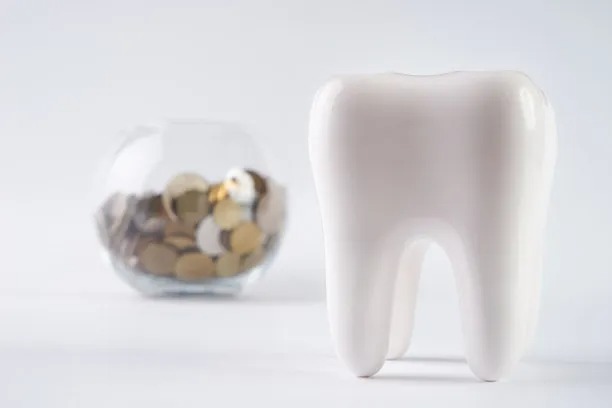Summary: Dental implants have emerged as a revolutionary treatment option for restoring smiles and ensuring lasting oral health. This article delves into the numerous benefits of dental implant treatment, including their role in enhancing functionality and aesthetics. Furthermore, it provides insights into the comprehensive process involved in receiving implants, encompassing planning, placement, and recovery. By understanding these aspects, individuals can make informed decisions regarding their oral health. The article emphasizes that dental implants are not just a cosmetic solution but a vital component of overall oral well-being, facilitating confidence and quality of life.
1. The Transformative Benefits of Dental Implants

Dental implants offer a multitude of benefits that can significantly enhance an individual’s quality of life. One of the most notable advantages is the restoration of functionality. Unlike dentures, which can shift and cause discomfort, dental implants are securely anchored in the jawbone, allowing for eating and speaking without concerns. Patients can enjoy their favorite foods and engage in social interactions with confidence.
Another critical benefit of dental implants is their aesthetic appeal. They are designed to look, feel, and function like natural teeth, providing a seamless blend with the existing dentition. The ability to smile freely without the embarrassment of gaps in the mouth can lead to improved self-esteem and a more positive outlook on life.
Lastly, dental implants contribute to maintaining oral health. They prevent adjacent teeth from shifting into the gap left by missing teeth and stimulate the jawbone, reducing the risk of bone loss. This element is crucial for long-term oral health, as it preserves the contours of the face and prevents the "sunken" look often associated with tooth loss.
2. Understanding the Comprehensive Implant Process
The dental implant process begins with a thorough assessment by a dental professional. This initial consultation includes diagnostic imaging, such as X-rays or 3D scans, to evaluate the jawbones health and structure. Identifying any underlying issues is essential for ensuring the success of the treatment and devising an effective treatment plan tailored to individual needs.
Once the planning phase is complete, the next step is the surgical placement of the implant. During this procedure, a titanium post is inserted into the jawbone, serving as the root for the new tooth. Patients receive local anesthesia, ensuring that they experience minimal discomfort. After the surgery, a healing period of several months is necessary for the bone to integrate with the implant.
The final phase involves attaching the custom-made crown, which is designed to match the surrounding teeth. This careful attention to detail ensures that the new tooth not only functions properly but also complements the patient’s smile aesthetically. Post-treatment follow-ups are critical to ensure the implants success and monitor healing.
3. Advantages Over Traditional Tooth Replacement Options
Compared to traditional dentures and bridges, dental implants stand out for their durability and longevity. While dentures may need regular replacement and can become ill-fitting over time, implants are a permanent solution that can last for a lifetime with proper care. This feature makes them a more economical option in the long run.
Furthermore, dental implants do not compromise adjacent teeth in the same way that dental bridges do. Bridges require alteration of neighboring teeth for support, which can lead to additional health issues. Implants promote better oral hygiene since they can be cleaned just like natural teeth, eliminating the need for special adhesives or denture care products.
Finally, dental implants are significantly less invasive than traditional tooth replacement methods. The procedure requires less removal of healthy tissue and offers a more straightforward recovery time. Many patients report minimal discomfort and return to their normal activities soon after the procedure, making implants a highly desirable option.
4. The Long-term Impact on Quality of Life
The long-term impacts of dental implants extend beyond mere aesthetics and functionality; they play a vital role in improving a patients overall quality of life. Enhanced oral health translates to better physical health, as individuals can maintain a balanced diet thanks to restored chewing ability. This aspect contributes to improved nutrition and overall well-being.
Moreover, patients who opt for dental implants often experience a boost in confidence. The fear of gaps or unstable dentures disappearing can contribute to social anxiety and avoidance. With a complete smile, individuals often feel more inclined to engage and communicate openly, leading to enriched social interactions and relationships.
Ultimately, the psychological benefits of dental implants are profound. They provide security, allowing individuals to express themselves freely. The transformation of one’s smile can have a ripple effect on self-perception, leading to a more active lifestyle and greater opportunities in both personal and professional realms.
Summary:
In conclusion, dental implants revolutionize the way we approach tooth replacement by providing lasting solutions for oral health and aesthetics. Their numerous benefits include the restoration of functionality, appearance, and oral hygiene, making them a preferred choice over traditional methods. The comprehensive process involved ensures a tailored approach to each patient’s unique needs, thereby improving both quality of life and self-esteem.
This article is compiled by Vickong Dental and the content is for reference only.
Vickong Dental
Vickong Dental is a large medical group established in Hong Kong in 2008 by professors from well-known medical universities in Guangdong and Hong Kong, as well as medical doctors from key national '985' universities (including Master's supervisors and senior professors). The chain of branches brings together expert dentists with PhDs and Master's degrees from Hong Kong and Mainland China, committed to providing high-quality dental treatment.
"Vickong Dental Practices the University Motto of 'Healing and Serving Society,' with a Stable Operation for Sixteen Years. It Has Been honored with Hong Kong Enterprise Leaders's Choice,' and is a Global Trusted Implant Center for the Nobel Implant System. Recommended by Hong Kong Metro Broadcast and Guangdong Television, it Serves Customers from Over Thirty Countries and Regions, Gaining the Trust and Favor of Citizens from the Guangdong-Hong Kong-Macau Greater Bay Area and Surrounding Cities.

Thousands of customers' unanimous praise
The most recognized and highly recommended dental service by customers in the Guangdong-Hong Kong-Macau Greater Bay Area
We Ensure You Receive Detailed Care and Attention Here
Hong Kong standards, Shenzhen prices, Your Trusted English-speaking dentists

Vickong Dental Medical-Grade Instrument Disinfection Process
Vickong Dental Medical-Grade Instrument Disinfection Process

Vickong Dental Chain: A Warm and Comfortable Environment for Treatment






Appointment Hours

Q&A
Why choose Vickong Dental?
Vickong Dental practices the university motto 「Medicine to Benefit Society」, with each branch bringing together highly qualified dentists with doctoral and master’s degrees from Hong Kong and the Mainland, and has maintained seventeen years of steady operation。Recipient of 「2024 Hong Kong Enterprise Leaders Brand」, 「2025 Hong Kong Enterprise Leaders Brand」, a Nobel Biocare Global Trusted Implant Center, and a brand recommended by Metro Radio Hong Kong and Guangdong TV。
To date, we have served customers from more than thirty countries and regions,earning exceptionally high word-of-mouth recognition and trusted recommendations from residents across the Guangdong-Hong Kong-Macao Greater Bay Area and surrounding cities
We have eight major branches in Zhuhai、Shenzhen,and a consultation and service assurance center in Hong Kong,so you can book a free consultation at any time for any questions,which is very reassuring.
If I do not accept the quotation after the CT scan, will I be charged??
No! As long as the actual treatment has not started, you will not be charged any fees.
Will there be any additional charges during the treatment process?
No, there won’t be any additional charges. Before treatment begins, we will clearly explain the treatment plan and its corresponding fees. Only after the patient agrees and signs the consent form will we proceed with the dental service.
Can I pay in Hong Kong dollars?
Yes. Vickong Dental accepts payment in Hong Kong dollars. The amount will be converted based on the exchange rate of the day, and the applicable rate will be clearly communicated to you in advance.
Can I reschedule my appointment at any time?
Yes. Please contact us via **WeChat** or **WhatsApp** as early as possible, providing your original appointment time and details, along with your preferred new date and time slot for rescheduling.













